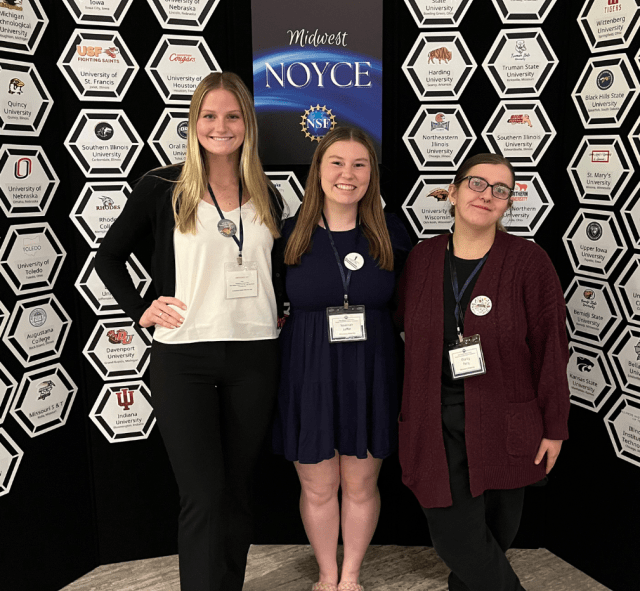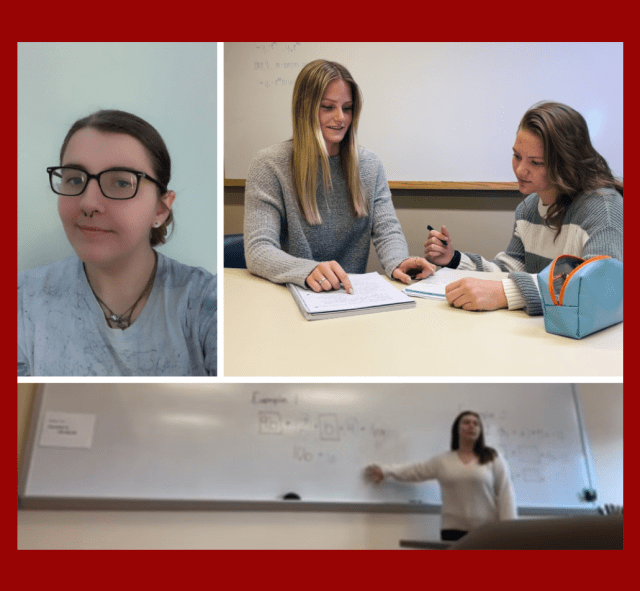Wittenberg recently announced new academic programs and changes to the curriculum for the upcoming fall semester. Programs that were approved by the Wittenberg Board of Directors during its spring meeting include:
- A new post-master's certificate in nursing education, which will be a fully online program.
- The Master of Arts in Athletic Coaching will be expanded into a Master of Arts in Sport Administration with a broader set of topics; it will also shift to being fully online.
- Two new tracks within the management major will be added to include supply chain management and project management.
- A Bachelor of Science option in exercise science will be offered to blend with the BA that is already offered.
- The Master of Arts in Education program will also move to being fully online to expand its reach.
In order to keep up with workforce demands, Wittenberg will also be looking at other academic programs, including those surrounding health and public health.
“The 2021-2022 academic year brought tremendous innovation and creativity to fruition,” Provost Michelle Mattson said. “Faculty have created or amended a number of academic programs that will enhance our competitiveness with prospective students at the undergraduate and graduate level. At this point, they largely build on existing capacity and/or new partnerships with intercollegiate consortia. Each addresses a particular need in today’s workforce or increasing demands from our current students in terms of preparing them for post-Wittenberg studies. I am tremendously proud to have been part of moving these forward through our shared governance processes and am grateful to all the faculty involved in devising these new programs and/or program revisions, as well as to the Wittenberg Board of Directors for approving them.”
The post-master’s certificate in nursing education will prepare individuals to be nurse educators and expert scholars who teach the next generation of nurses grounded in evidence-based knowledge, focused on health outcomes, with classroom leadership and management skills.
Organizations such as the Institute of Medicine, Robert Wood Johnson Foundation, and The Joint Commission (TJC) have called for radical transformation in educational programs and processes that serve to prepare these healthcare providers of tomorrow (AACN, 2019a). The missing link is the number of nursing faculty members that are educationally prepared and ready to answer this call.
Currently there is a national demand for nurse educators in response to continuing growth in anticipated need for nurses (who must be taught by nurse educators), the current numbers of students seeking nursing education, the current scarcity of nursing faculty, and the continued number of retiring faculty in nursing programs. This demand supports the development and implementation of a post masters’ certificate in nursing education at Wittenberg University.
Wittenberg is revising such existing programs as the Master of Arts in Athletic Coaching and the Master of Arts in Education with both programs moving to a fully online format.
The Master of Arts in Athletic Coaching will undergo a name change and become the Master of Arts in Sport Administration to include a broader set of topics. The program will continue to be based on a cohort model, will make use of current personnel and facilities to the extent possible, and will be designed to complement the University’s traditional strength in varsity athletics and leadership development. Administrators believe that both the change in name and the move to 100 percent online will enhance the program’s marketability to a broader audience. The program should appeal to high school and college coaches, teachers, especially those who coach or/and have a background in physical education) and Wittenberg graduates, specifically former athletes, athletic administrators, club coaches, recreation specialists, and any other graduate who has an interest in a career in coaching and/or administration.
The Master of Arts in Education will also move to a fully online format. Since 2003, higher education has evolved with the increasing acceptance of online learning as a viable option for obtaining an advanced degree and technology has transformed how teachers choose providers for their continuing higher education. A 2019 study by Wiley Education Services reports that education continues to be one of the largest disciplines among graduate degrees awarded, second to business degrees. By moving the program online, Wittenberg’s program is expected to make an even greater impact in teacher education.
Moreover, in an effort to extend opportunities in business to students, Wittenberg will revise the management major in business and economics and add new tracks in supply chain management (SCM) and project management (PM).
These new tracks would make use of two courses available through the Lower Cost Models for Independent Colleges consortium on the RIZE platform, as well as a revised course in the business curriculum “Introduction to Project Management. The regular management major will continue to be an option for students.
The University’s current management major is a broad-based, general management approach; however newer statistics point to companies wanting a well-rounded graduate with a diverse education. Global and technological advances solidify the need for systems thinking and new approaches to organizational management. Having concentrations in two in-demand areas would help Wittenberg students to compete better on the job market. These concentrations are also designed to provide students with a more in-depth skillset while also maintaining ample room in their schedules for foundational courses imperative for their long-term success.
The fundamental goal of the management major with a concentration is to help students learn the skills necessary to secure entry-level positions in SCM or PM, while also providing the educational background necessary for them to grow in their careers in the years to come. In tandem with existing business core curricula, students electing a SCM or PM concentration, will learn the skills necessary to work in these specific entry-level roles in today’s economy. Wittenberg will also bring back the economics major to expand business offerings.
Additionally, students will now be able to obtain or B.A. or a B.S. in exercise science as a large portion of the University’s exercise science majors choose or aspire to go into professional careers such as physical therapy, occupational therapy, physician assistant, or athletic training and thus require courses that are similar between all professional programs. The B.S. option would provide students with the opportunity to attain all pre-requisite courses for these programs and allow for a more cross-disciplinary curriculum, involving eight other departments.
Futhermore, students can successfully complete their major and post-baccalaureate requirements for these programs while allowing the University to make better use of the newly created gross anatomy lab set to open this fall.
The most important thing that we’re doing is trying to make sure that students have experiences and pathways directly to future opportunities, explained President Michael L. Frandsen in a recent interview with the Dayton Business Journal.
“How do we have more robust career and graduate school placement and service placement?” he asked. “Faculty and staff offered a spring experiential curriculum week called F.I.R.E. Week (Focused, Integrated, Reflective Experience). We want to scale it for every student to have a F.I.R.E. Week experience three of their four years. This year we had four dozen students. It’s helping [students] understand what they want to do next.”







